



If you ever find yourself dreaming of a place where vibrant culture meets breathtaking landscapes,Kabupaten Badung in Bali is where that dream comes alive. The moment you step into this region,you’re greeted by the rhythmic hum of daily life—motorbikes weaving through lush rice terraces,the scent of frangipani and salty ocean breeze mingling in the air. It’s a place where tradition pulses through every street and temple,yet the energy feels refreshingly alive and modern. Walking through Badung,you’ll catch the colorful chaos of local markets,where vendors call out their fresh catch or fragrant spices,and the taste of freshly grilled satay lingers on your tongue. The beaches here aren’t just pretty—they’re alive with surfers chasing waves,children building sandcastles,and the golden light of sunset painting the sky in hues you didn’t know existed. At night,the sound of gamelan music drifts from open-air cafes,inviting you to slow down and soak in the warmth of Balinese hospitality. What makes Badung truly special is how it balances the sacred and the everyday. You’ll see locals offering flowers at temple shrines,a quiet reminder of the deep spirituality woven into daily life. Yet,just around the corner,you can dive into vibrant nightlife or indulge in world-class cuisine that blends traditional flavors with fresh,local ingredients. It’s a place that feels both timeless and alive,where every moment invites you to explore,taste,and connect.
The information on this page is currently being reviewed by Tripkliq and should be used as a guide only
Eng word: Hello
Eng pronunciation: HAH-loh
Local language: Halo
Eng word: Goodbye
Eng pronunciation: suh-LAH-maht TING-gahl
Local language: Selamat tinggal
Eng word: Thank you
Eng pronunciation: teh-REE-mah KAH-see
Local language: Terima kasih
Eng word: How much
Eng pronunciation: buh-RAH-pah
Local language: Berapa
Eng word: Toilet
Eng pronunciation: TOY-let
Local language: Toilet
Eng word: Help me
Eng pronunciation: TOH-long SAH-yah
Local language: Tolong saya
Eng word: Yes
Eng pronunciation: YAH
Local language: Ya
Eng word: No
Eng pronunciation: TEE-dahk
Local language: Tidak
Eng word: Excuse me
Eng pronunciation: puhr-MEE-see
Local language: Permisi
Kabupaten Badung was once part of the ancient Badung Kingdom, which played a significant role in Bali's history. The kingdom was known for its rich culture and contributions to Balinese art and traditions.
Built in the 17th century, Pura Taman Ayun is a royal temple complex in Mengwi, Badung. It is renowned for its beautiful architecture and expansive gardens, making it a UNESCO World Heritage Site.
During the Dutch colonial period, Badung was an important administrative region. The influence of Dutch architecture can still be seen in some of the older buildings in the area.
Named after the Balinese hero I Gusti Ngurah Rai, the airport in Badung is one of Indonesia's busiest and serves as a gateway to Bali, significantly boosting the region's tourism.
Kuta Beach, located in Badung, transformed from a quiet fishing village into a bustling tourist destination in the 1970s. It is now famous for its vibrant nightlife and surfing spots.
This cultural park in Badung is home to the iconic Garuda Wisnu Kencana statue, one of the tallest statues in the world. It symbolizes the Hindu god Vishnu riding the mythical bird Garuda.
Badung is a hub for traditional Balinese dance and music. Performances such as the Kecak and Legong dances are popular attractions for tourists seeking to experience Balinese culture.
Perched on a cliff overlooking the Indian Ocean, Uluwatu Temple is one of Bali's most important sea temples. It is famous for its stunning sunset views and traditional Kecak dance performances.
Jimbaran Bay in Badung is renowned for its seafood restaurants and beautiful beaches. It has a rich history as a fishing village and is now a popular spot for tourists to enjoy fresh seafood by the sea.
In Kabupaten Badung, the most common Power Adaptor is Type C, Type F.



Minced meat (often fish or chicken) mixed with grated coconut and spices, wrapped around bamboo sticks and grilled to perfection.
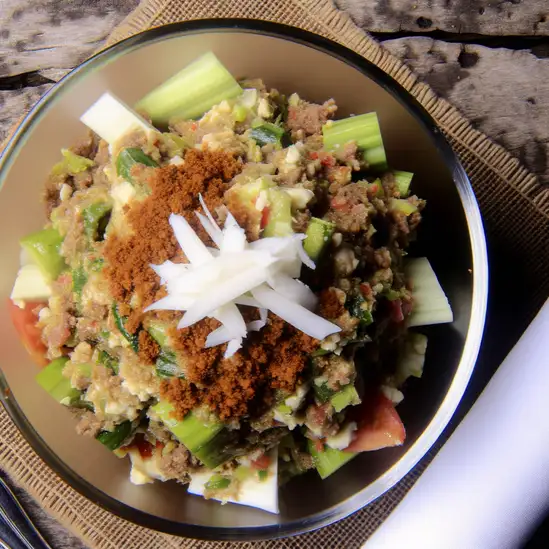
A traditional salad made from vegetables, coconut, and minced meat, seasoned with a mix of spices, often served as a side dish.
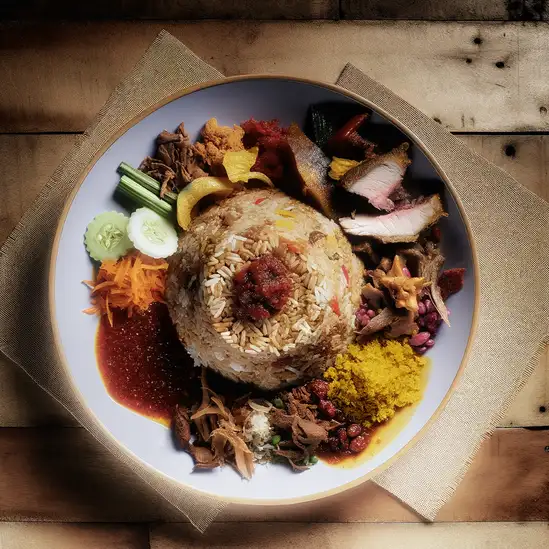
A mixed rice dish served with a variety of side dishes, including meats, vegetables, and sambal, showcasing the rich flavors of Balinese cuisine.
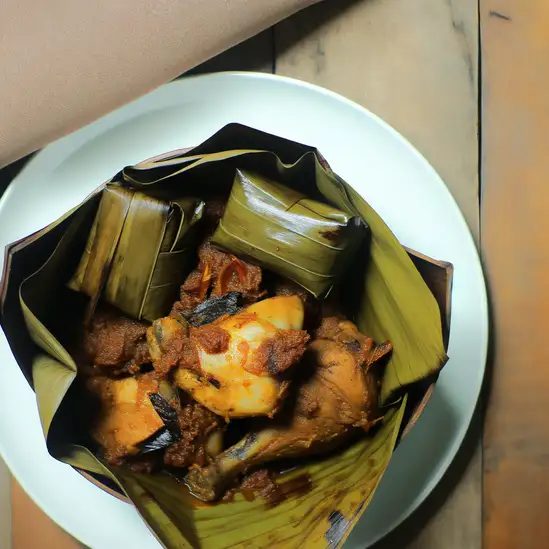
Spiced chicken that is marinated and wrapped in banana leaves, then slow-cooked, resulting in a flavorful and tender dish.
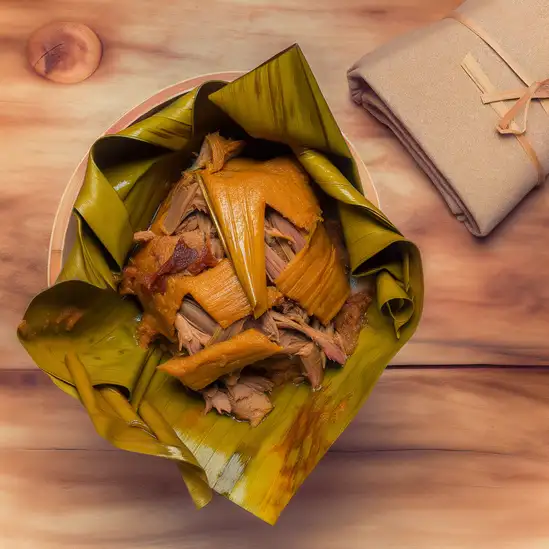
A traditional Balinese dish made of duck stuffed with spices, wrapped in banana leaves, and slow-cooked until tender.
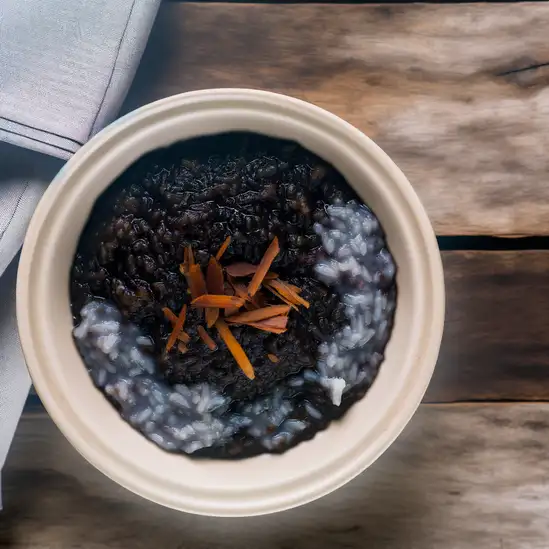
A black rice pudding made with glutinous rice, coconut milk, and palm sugar, often enjoyed as a dessert.

Traditional Balinese snacks or cakes made from rice flour and coconut, often colorful and served during ceremonies and festivals.
If you find yourself wandering through Kota Denpasar,you’ll immediately notice its lively heartbeat—a city that hums with everyday life yet carries a deep cultural rhythm beneath the surface. It’s not the polished tourist hub like southern Bali,but that’s exactly what makes it so captivating. The streets buzz with scooters weaving through markets where the scent of fresh spices mingles with the earthy aroma of tropical fruits. Vendors call out in warm,melodic tones,inviting you to taste something new or simply share a smile.
Denpasar feels like the authentic soul of Bali,where tradition and modern life dance side by side. You’ll see women in vibrant kebayas carrying offerings to temples,while nearby,young artists sketch murals that splash color onto old walls. The city’s pulse is both chaotic and comforting,with the clatter of street food stalls serving up fragrant nasi campur and the gentle chime of temple bells weaving through the air.
What’s truly special is how Denpasar invites you to slow down and soak in its layers—whether it’s the warmth of a local’s greeting,the taste of freshly brewed Balinese coffee,or the sight of intricate carvings on ancient temples tucked between bustling streets. It’s a place where you don’t just visit; you become part of the daily story,feeling the city’s spirit in every step you take.
If you ever find yourself craving a place where time slows down just enough to savor every moment,Ubud is that kind of sanctuary. Nestled in the lush heart of Bali,this town hums with a gentle rhythm—part spiritual retreat,part creative hub. Walking through its streets,you’ll catch the scent of frangipani and incense mingling with the earthy aroma of wet rice fields nearby. The air feels alive,filled with the soft chatter of locals,the distant clink of gamelan music,and the occasional call of a rooster greeting the dawn.
Ubud’s charm lies in its seamless blend of tradition and artistry. Temples with intricate stone carvings peek through vibrant greenery,while open-air markets burst with colorful textiles,hand-carved masks,and fresh tropical fruits. You can sip on a rich,earthy cup of Balinese coffee at a cozy café,watching artisans craft delicate silver jewelry or dancers rehearsing for an evening performance. It’s a place where culture isn’t just observed—it’s lived and breathed.
What really stays with you is the warmth of the people and the sense of connection to nature and spirit. Whether you’re wandering through the terraced rice paddies,joining a yoga class overlooking the jungle,or simply sitting by the Campuhan Ridge Trail at sunset,Ubud invites you to slow down,breathe deeply,and soak in a world that feels both ancient and vibrantly alive.
If you find yourself wandering through Kota Administrasi Jakarta Pusat,you’ll immediately notice the pulse of a city that’s both historic and buzzing with modern energy. It’s a place where colonial-era buildings stand shoulder to shoulder with sleek skyscrapers,creating a fascinating blend of old and new. Walking down the streets,you can almost hear the echoes of history mingling with the chatter of office workers and street vendors. The air carries a mix of aromas—from the rich,spicy scent of street food stalls grilling satay to the faint,comforting smell of freshly brewed kopi from tiny warungs tucked in corners.
What really makes Jakarta Pusat special is its vibrant character. It’s the heart of the city’s administrative and cultural life,so you’ll find a lively mix of people—government officials,artists,students,and families—all weaving their stories into the urban fabric. The bustling markets,like Pasar Baru,invite you to haggle over colorful textiles and local snacks,while nearby museums and galleries offer a quiet retreat into Indonesia’s rich heritage.
There’s a rhythm here that’s both fast-paced and inviting. Whether you’re sipping a sweet es cendol under the shade of a tree in Merdeka Square or catching the golden light reflecting off the National Monument at dusk,Jakarta Pusat feels alive in a way that’s deeply human and endlessly fascinating. It’s a city that invites you to slow down,look around,and soak in the layers of life unfolding all at once.
Surabaya pulses with an energy that’s both vibrant and welcoming,a city where history and modern life dance side by side. As you wander through its bustling streets,you’ll catch the scent of sizzling satay mingling with the salty breeze from the nearby harbor. The city hums with the chatter of locals bargaining in lively markets,the clatter of motorbikes weaving through traffic,and the distant call of street vendors selling fresh tropical fruits. It’s a place where every corner tells a story—from colonial-era buildings standing proudly alongside sleek skyscrapers to colorful murals that splash life onto old walls.
What really makes Surabaya special is its character:tough yet warm,a city that’s seen its share of history but never lost its heart. The people here are fiercely proud and incredibly friendly,always ready to share a smile or a recommendation for the best local warung. Dive into the food scene and you’ll find yourself savoring rich,spicy flavors—like the famous rawon,a dark beef soup that’s both comforting and bold,or the sweet,sticky lontong balap that fills the air with fragrant spices.
Evenings in Surabaya have their own magic. The city lights flicker on,and the streets fill with the sounds of gamelan music drifting from cultural performances or the laughter spilling out of cozy cafes. Whether you’re exploring the historic old town or simply sipping kopi on a street corner,Surabaya invites you to slow down,soak in its layers,and feel the heartbeat of a city that’s alive in every sense.
If you ever find yourself wandering through Yogyakarta,you’ll immediately notice a rhythm that feels both lively and laid-back,like the city is humming a gentle,inviting tune. It’s a place where ancient traditions and youthful energy collide in the most beautiful way. As you stroll down Malioboro Street,the air is thick with the scent of sizzling satay and sweet jasmine from roadside stalls,while the chatter of locals bargaining and the distant beat of gamelan music create a vibrant soundtrack. The city’s heart beats in its art and culture—every corner seems to hold a story,from the intricate batik workshops to the majestic temples of Borobudur and Prambanan just a short ride away.
Yogyakarta’s charm lies in its warmth and authenticity. The people here are incredibly welcoming,often eager to share their crafts,stories,or a cup of strong Javanese coffee. You can feel the city’s deep respect for its heritage,yet it’s also a hub for creative souls,with street art splashed across walls and indie cafes buzzing with young artists and thinkers. The sunsets here are something else—casting a golden glow over the terracotta rooftops and ancient palaces,inviting you to pause and soak it all in.
Whether you’re wandering through the Sultan’s Palace,tasting gudeg (a sweet jackfruit stew) at a local warung,or simply watching the world go by from a cozy café,Yogyakarta wraps you in a sense of belonging. It’s a city that doesn’t just ask you to visit but to stay a little longer,to explore deeper,and to fall in love with its soul.
Imagine stepping into a place where the ocean breeze carries the scent of salt and frangipani,and the rhythm of traditional gamelan music hums softly in the background. That’s Lombok for you—a vibrant island that feels both alive and laid-back at the same time. Unlike its flashier neighbor Bali,Lombok has this raw,untouched charm that invites you to slow down and really soak in the moment. The beaches here aren’t just pretty; they’re vast stretches of powdery white sand meeting turquoise waves that seem to whisper stories of ancient fishermen and island life.
Walking through the local markets,you’ll hear the lively chatter of vendors selling fresh spices,tropical fruits,and handwoven textiles. The air is thick with the aroma of grilled satay and sweet coconut,tempting you to try every bite. The Sasak people,with their warm smiles and rich traditions,add a deep cultural layer to the island’s character. You might catch a glimpse of their intricate weaving or hear tales of their unique ceremonies,which feel like a bridge between past and present.
What really stays with you about Lombok is its balance—between adventure and tranquility,nature and culture. Whether you’re hiking up Mount Rinjani’s misty slopes,diving into vibrant coral reefs,or simply sipping a fresh coconut by a quiet beach,there’s a genuine sense of connection here. It’s a place that doesn’t just fill your camera roll but leaves a quiet imprint on your heart.
Scammers may install skimming devices on ATMs to steal card information and PINs from unsuspecting users.
Tourists may be charged excessive fees for renting beach chairs or umbrellas without clear pricing upfront.
Money changers may use sleight of hand or hidden fees to shortchange tourists during currency exchanges.
Scammers posing as police officers may stop tourists and demand on-the-spot fines for fabricated violations.
Scammers may sell counterfeit tickets for popular attractions or events, leaving tourists unable to enter.
Unlicensed individuals may pose as tour guides and charge high fees for subpar or unnecessary services.
Tourists may be accused of damaging rented motorbikes and forced to pay for repairs they didn’t cause.
Some restaurants or bars may not display prices and charge tourists significantly more than locals.
Vendors in tourist-heavy areas may charge exorbitant prices for souvenirs, especially if tourists don’t negotiate.
Rental scooters may be provided with an empty fuel tank, and tourists are directed to overpriced fuel sellers nearby.
Some taxi drivers may refuse to use the meter and charge tourists inflated prices for short trips.
Tourists may be lured into attending high-pressure sales presentations for timeshares that are overpriced or fraudulent.
Indonesia has very strict drug laws, and this includes Kabupaten Badung. The possession, use, or trafficking of illegal drugs can result in severe penalties, including long prison sentences and even the death penalty. Tourists should avoid any involvement with illegal drugs to avoid serious legal consequences.
In Kabupaten Badung, Indonesia, smoking is generally allowed in public areas, but there are restrictions. Smoking is prohibited in certain public places such as schools, hospitals, and government buildings. Many restaurants and cafes have designated smoking areas. Tourists should look for 'No Smoking' signs and respect local regulations.
Vaping is subject to similar regulations as smoking in Kabupaten Badung. It is generally allowed in public areas but prohibited in specific places like schools, hospitals, and government buildings. Tourists should be mindful of 'No Vaping' signs and adhere to local rules.
What are other people saying about Kabupaten Badung?
Recent Social posts about Kabupaten Badung
There is nothing to show you for now.